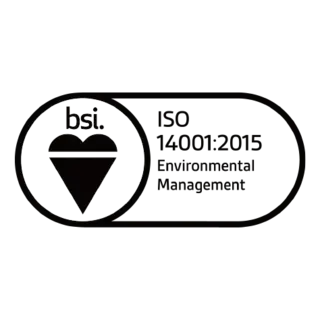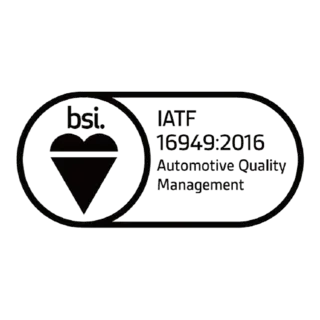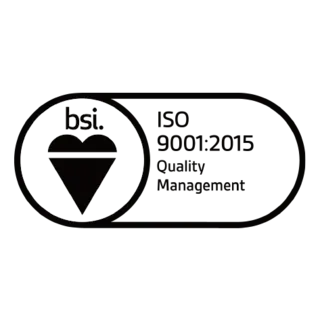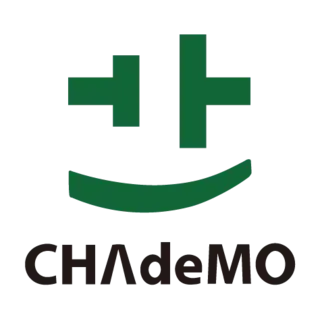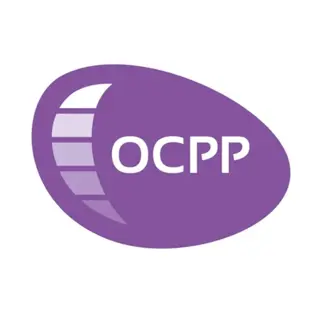ISO 14001:2015: Advancing Sustainability in EV Charging
ISO 14001:2015, developed by the International Organization for Standardization (ISO), is the global standard for environmental management systems. It provides organizations with a framework to enhance environmental performance by ensuring compliance with legal requirements, reducing environmental impact, and fostering continuous improvement. For the electric vehicle (EV) charging industry, achieving ISO 14001 certification demonstrates a strong commitment to sustainability. It enables EV charging companies to systematically manage their environmental footprint, align with regulatory standards, and implement eco-friendly practices. By adopting this standard, businesses not only contribute to environmental protection but also strengthen their reputation as responsible and sustainable players in the growing EV market.
IATF 16949:2016: Raising Quality in EV Charging Manufacturing
IATF 16949:2016 is the internationally recognized standard for automotive quality management systems, developed by the International Automotive Task Force (IATF) and aligned with ISO 9001:2015. This standard emphasizes defect prevention, reduction of variation and waste, and continuous improvement, ensuring automotive organizations meet stringent customer and regulatory requirements for high-quality products.
As the global transition to sustainable transportation accelerates, the demand for electric vehicles (EVs) and reliable charging infrastructure is surging. For manufacturers of EV charging systems, achieving IATF 16949 certification aligns their quality management processes with global automotive standards, demonstrating a commitment to delivering dependable, high-quality products. This certification not only enhances quality assurance processes but also positions manufacturers as trusted suppliers in the competitive automotive sector. For companies within the EV supply chain, IATF 16949 certification provides a significant competitive edge, assuring customers and original equipment manufacturers (OEMs) that their products adhere to rigorous quality benchmarks, fostering trust and credibility in the market.
ISO 9001:2015: Boosting Quality in LiCB’s EV Charging Operations
ISO 9001:2015, developed by the International Organization for Standardization (ISO), is the latest version of the globally recognized standard for quality management systems. It offers organizations a framework to establish, implement, and enhance their quality management practices, emphasizing risk-based thinking, leadership commitment, process optimization, and continuous improvement. For LiCB’s EV charging business, ISO 9001 serves as a foundational tool, ensuring a systematic and organized approach across operations. By adhering to this standard, LiCB can strengthen its processes, improve efficiency, and deliver high-quality products and services, fostering trust and reliability in the competitive EV charging market.
CHAdeMO: Leading DC Fast-Charging for EVs
CHAdeMO is both the name of a DC fast-charging technology for electric vehicles and the organization responsible for its development. Created by the CHAdeMO Association—comprising industry leaders like TEPCO, Nissan, Mitsubishi, and Toyota—this standard enables high-power DC charging, allowing EVs to reach an 80% charge in approximately 30 minutes. While CHAdeMO is widely used in Japan, its adoption has expanded globally, making it a key player in the EV charging landscape. The technology supports efficient, rapid charging, enhancing the convenience and practicality of electric vehicles for drivers worldwide.
TÜV Certification in EV Charging
TÜV, short for Technischer Überwachungsverein (Technical Inspection Association), is a globally recognized safety certification mark originating from Germany. The TÜV logo signifies that a product meets rigorous safety and quality standards, making it widely trusted across Germany and Europe. TÜV SÜD, a leading certification body, offers testing and certification services for EV charging infrastructure, ensuring compliance with industry standards. This includes AC charging stations, wall boxes, DC fast chargers (CHAdeMO and CCS), and inductive charging systems. By certifying charging stations, connectors, and electrical components, TÜV SÜD helps manufacturers demonstrate reliability, safety, and compliance, fostering consumer confidence and supporting the growth of sustainable mobility solutions.
EV Charger CE Certification
CE (Conformité Européenne) is a certification mark that signifies a product complies with the health, safety, and environmental protection standards required for sale in the European Economic Area. It assures consumers that the product meets stringent safety and quality benchmarks. For equipment like EV charging stations, CE certification is essential for market entry in Europe and builds consumer trust. The certification process evaluates various aspects, including electrical safety, electromagnetic compatibility, and radiation standards. Only products that meet these rigorous requirements can earn the CE mark, ensuring they align with EU regulations and provide reliable performance for users across the region.
OCPP (Open Charge Point Protocol)
OCPP (Open Charge Point Protocol) is a certification program that ensures electric vehicle (EV) charging points comply with the OCPP communication standard. Developed by the Open Charge Alliance, this universal protocol facilitates seamless communication and integration between EV charging stations and network management systems. By promoting interoperability, OCPP allows charging stations from different manufacturers to work together within a single network, enhancing flexibility and scalability for businesses and operators. This standardization simplifies the management of charging infrastructure, supports future technological advancements, and ensures a consistent, reliable experience for EV drivers, making it a cornerstone of modern EV charging ecosystems.

